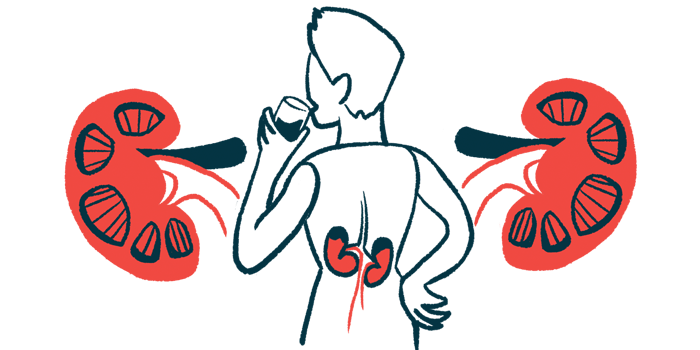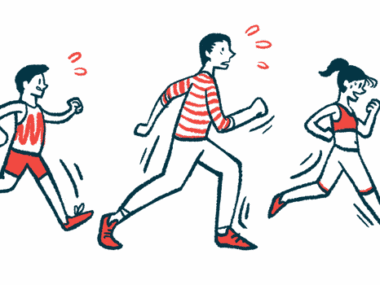Urinary Incontinence Can Rise as Women Age, Study Finds
Written by |

Urinary incontinence, known to affect both girls and women with cystic fibrosis (CF), is increasingly prevalent as these patients age, and coughing or sneezing were common triggers among adults who took part in a study at a single site in Italy.
Incontinence during physical exercise was also fairly common to those in this group with this condition, and patients’ nutritional status was noted. Study findings also indicated that urinary incontinence may be linked to greater disease severity.
“A prompt referral for assessment and treatment with specialist urologist should be available at each CF clinic, as to investigate the onset and type of UI [urinary incontinence] early, even in younger patients,” the scientists wrote.
The study, “Prevalence and factors associated with urinary incontinence in females with cystic fibrosis: an Italian single-center cross-sectional analysis,” was published in the journal Pediatric Pulmonology.
Almost two decades ago, urinary incontinence was first recognized as a complication of chronic lung disease, and patients often described the complication as embarrassing or shameful. Urinary incontinence can limit patients’ social and physical activities, negatively affecting their quality of life and overall health, the study noted.
Estimates of incontinence among women with CF, a chronic lung disease, range from 30% to 76%, but its exact causes are not clear.
Researchers in Milan conducted a study to estimate the prevalence of urinary incontinence among female patients at their “large” CF referral center. They also assessed the association between urinary incontinence and CF disease severity.
A total of 153 female patients were enrolled in the study, their mean age was 18, and 70.4% had normal lung function.
Results showed that 51 patients (33%) had urinary incontinence, with their age ranging from 6 to 43. Among children and adolescents, the prevalence was 15% (12 of 82 patients), and among adults it was 54.9% (39 of 71 women).
Sixty-four children and adolescents (or their parents) answered the ICIQ-CLUTS survey, a standardized questionnaire regarding urinary incontinence in the pediatric population. Nine participants reported urinary incontinence, with three reports of wetting the bed at night and one of wetting the bed about once a week or less.
Among the 71 women who completed the ICIQ-SF questionnaire of urinary incontinence in adults, the most common triggers of this complication were coughing and sneezing (82%), followed by exercise (28%). The severity of urinary incontinence in the adult respondents varied from mild in 64%, moderate in 26%, to severe in 10%.
As the scientists noted, CF patients who reported urinary incontinence in this study were older on average and had many of the main characteristics of CF, such as pancreatic insufficiency, chronic colonization by Pseudomonas aeruginosa, and the presence of CF-related diabetes.
Compared with previous reports, females with urinary incontinence in this study also had more severe respiratory issues and longer CF-related hospitalizations, suggesting greater disease severity, the scientists said.
Neither constipation nor exercise, both of which have previously been linked to urinary incontinence in the general population, were more common in CF patients reporting urinary incontinence.
Physical activity is “notoriously associated with stress incontinence,” the researchers wrote, but “we could not find evidence of difference between patients with or without” urinary incontinence.
In contrast, higher body mass index (BMI, a measure of body fat) was associated with a greater risk of incontinence, in line with a reported link between obesity and urinary incontinence in healthy people.
A high BMI could mask low muscle mass, a concern in patients with severe CF, the team noted. And poor muscle performance associated with high BMI could impair the ability of pelvic floor muscles to contract while coughing, leading to urinary leakage, the investigators added.
However, the findings also indicated that undernutrition could also be associated with more severe disease and, by consequence, to urinary incontinence.
“Although it frequently occurs in older patients with a more severe phenotype [clinical presentation], much attention should be paid to adults and to their nutritional status,” the team wrote. “Considering stress incontinence as the main type of UI for patients with CF, it would be useful to organize educational interventions on UI during annual follow-up visits.







